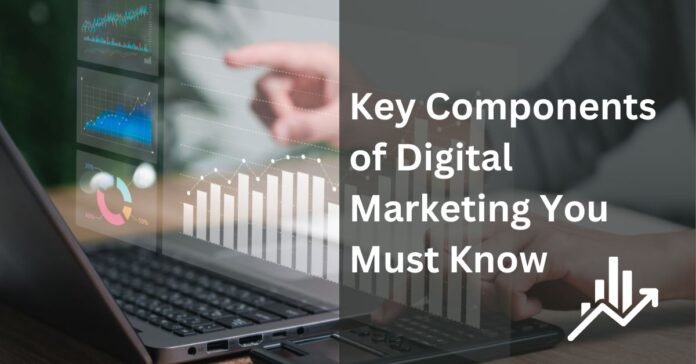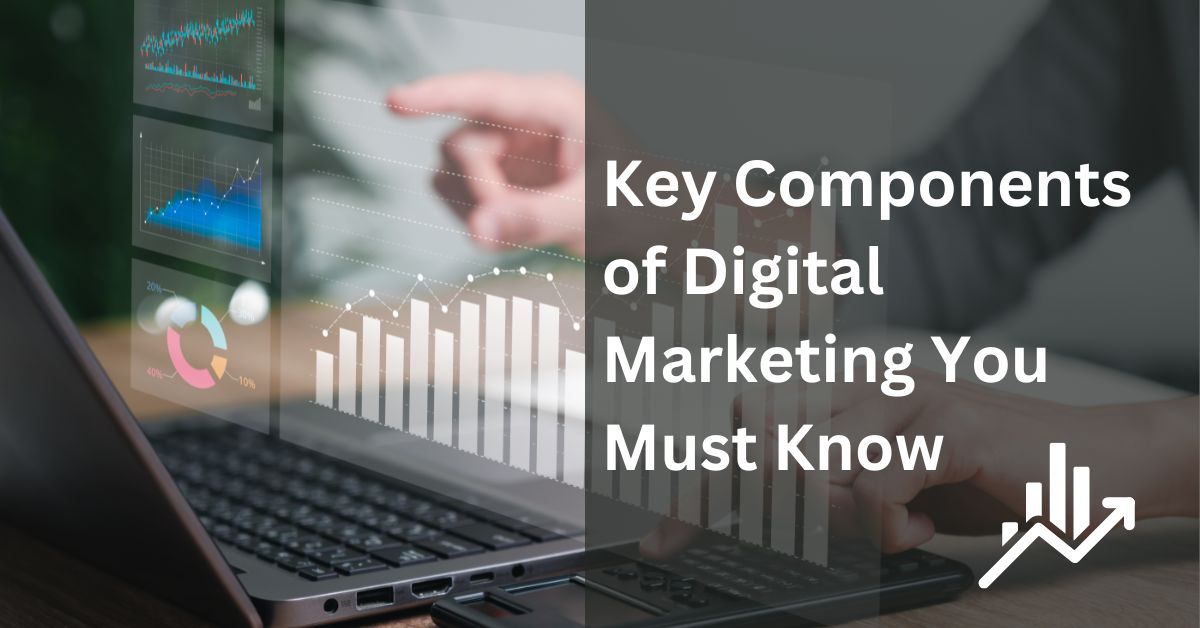In the ever-evolving world of business, digital marketing has become an indispensable tool for companies aiming to thrive in the online marketplace. It encompasses a vast array of strategies and techniques designed to attract, engage, and convert online audiences. Below, we delve into the major components of digital marketing, each playing a crucial role in a successful online marketing strategy.
What is Digital Marketing?
Digital marketing encompasses the targeted, measurable, and interactive marketing of products or services using digital technologies to reach and convert leads into customers and retain them. It leverages various channels such as search engines, social media, email, and websites to connect with current and prospective customers.
Unlike traditional marketing methods, digital marketing offers precise targeting, real-time data analysis, and the ability to adjust strategies quickly for maximum effectiveness. It’s a comprehensive approach that includes SEO, content marketing, social media marketing, email marketing, PPC, and more, aimed at enhancing online presence and engaging digital audiences effectively.
What are the Major Components of Digital Marketing?
1. Search Engine Optimization (SEO)
SEO is the art and science of optimizing your website and content to rank higher on search engine results pages (SERPs). By understanding and implementing SEO best practices, businesses can increase their visibility, drive organic traffic, and enhance their credibility. Key aspects of SEO include keyword research, on-page optimization (like meta tags and content quality), and off-page tactics (such as backlinking).
2. Content Marketing
Content marketing focuses on creating and distributing valuable, relevant, and consistent content to attract and retain a clearly defined audience. The goal is to drive profitable customer action. This component encompasses blog posts, videos, infographics, podcasts, and more. Effective content marketing not only informs and entertains but also establishes authority and trust with your audience.
3. Social Media Marketing
Social media platforms offer a dynamic space for businesses to connect with their audience. Social media marketing involves creating and sharing content on social media networks to achieve your branding and marketing goals. It includes activities like posting text and image updates, videos, and other content that drives audience engagement, as well as paid social media advertising.
4. Email Marketing
Email marketing is a highly effective digital marketing strategy that involves sending emails to prospects and customers. Done correctly, email marketing can convert prospects into customers and turn one-time buyers into loyal fans. It’s an excellent channel for personalized communication and offers one of the highest return on investment (ROI) rates among digital marketing strategies.
5. Pay-Per-Click Advertising (PPC)
PPC is a model of internet marketing in which advertisers pay a fee each time one of their ads is clicked. Essentially, it’s a way of buying visits to your site, rather than attempting to “earn” those visits organically. Google Ads is one of the most popular PPC platforms, but social media platforms like Facebook and Twitter also offer PPC ad models.
6. Affiliate Marketing
Affiliate marketing is a performance-based marketing strategy where a business rewards one or more affiliates for each visitor or customer brought by the affiliate’s own marketing efforts. It’s a way for companies to expand their marketing reach through the networks of their affiliates, and for affiliates to earn income through their promotional activities.
7. Mobile Marketing
With the increasing prevalence of smartphones, mobile marketing has become a crucial component of digital marketing strategies. It involves reaching customers and prospects through SMS, MMS, mobile apps, and websites optimized for mobile devices. Mobile marketing offers personalized, time and location-sensitive information, making it an effective way to engage consumers.
8. Analytics and Data Analysis
Understanding and analyzing data is key to the success of any digital marketing campaign. Web analytics tools like Google Analytics can provide invaluable insights into your website traffic, user behavior, and campaign performance. Data analysis allows businesses to make informed decisions, optimize their marketing strategies, and achieve better outcomes.
9. Influencer Marketing
In the age of social media, influencer marketing has emerged as a powerful strategy for reaching target audiences in a more authentic and engaging way. It involves partnering with influencers—individuals with a substantial and engaged following on social media or other online platforms—to promote products, services, or brand messages.
10. Video Marketing
Video marketing is the use of video content to promote and market products or services, increase engagement on digital and social channels, educate consumers and customers, and reach audiences with a new medium. Video content has become one of the most engaging forms of content, with platforms such as YouTube, Instagram, and TikTok facilitating the rapid spread of video content.
In conclusion
Digital marketing is a complex ecosystem composed of several key components, each essential to the success of online marketing initiatives. By effectively utilizing these components, businesses, including digital marketing agency in Wilmington, NC, can amplify their online visibility, deeply connect with their audience, and foster growth in a world that is becoming progressively digital.


